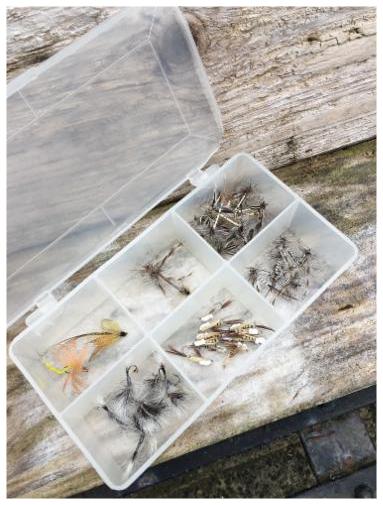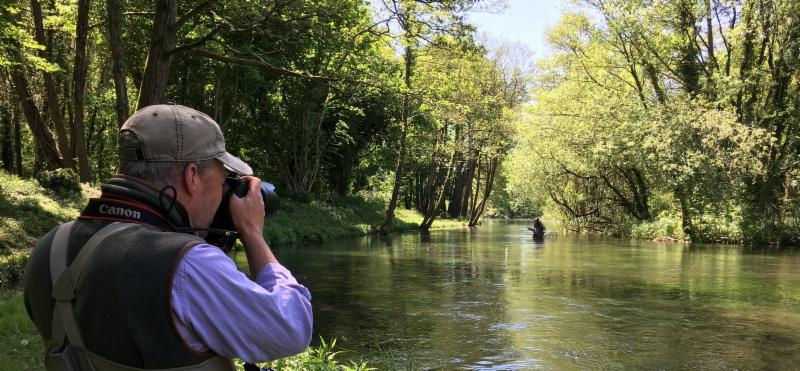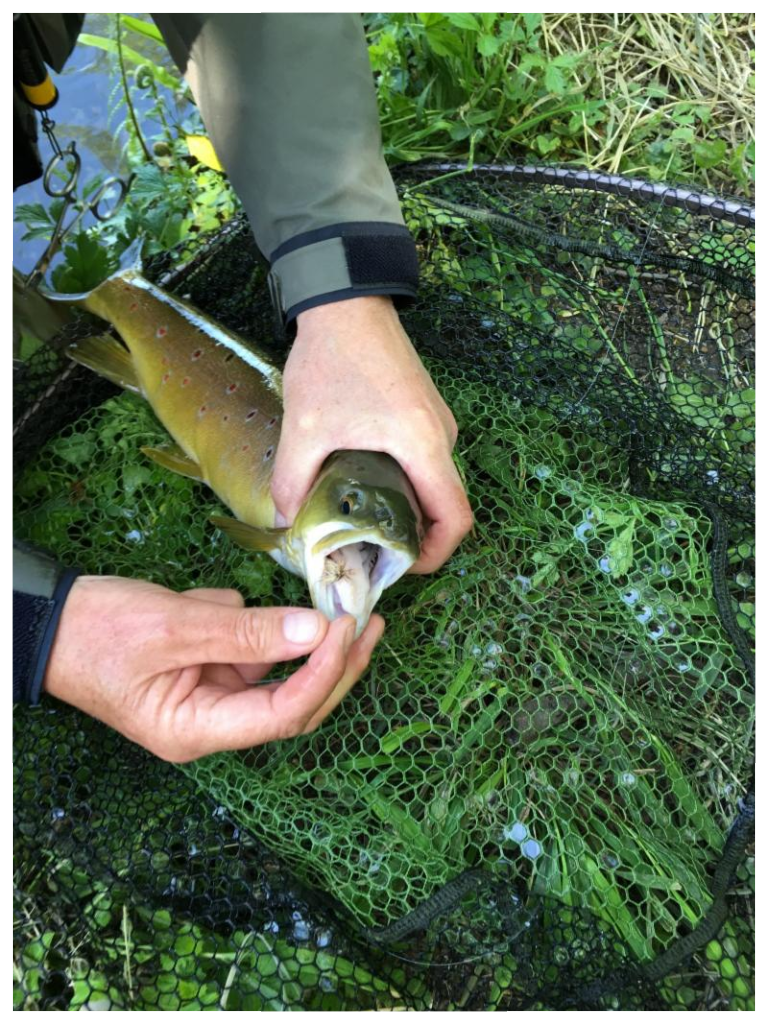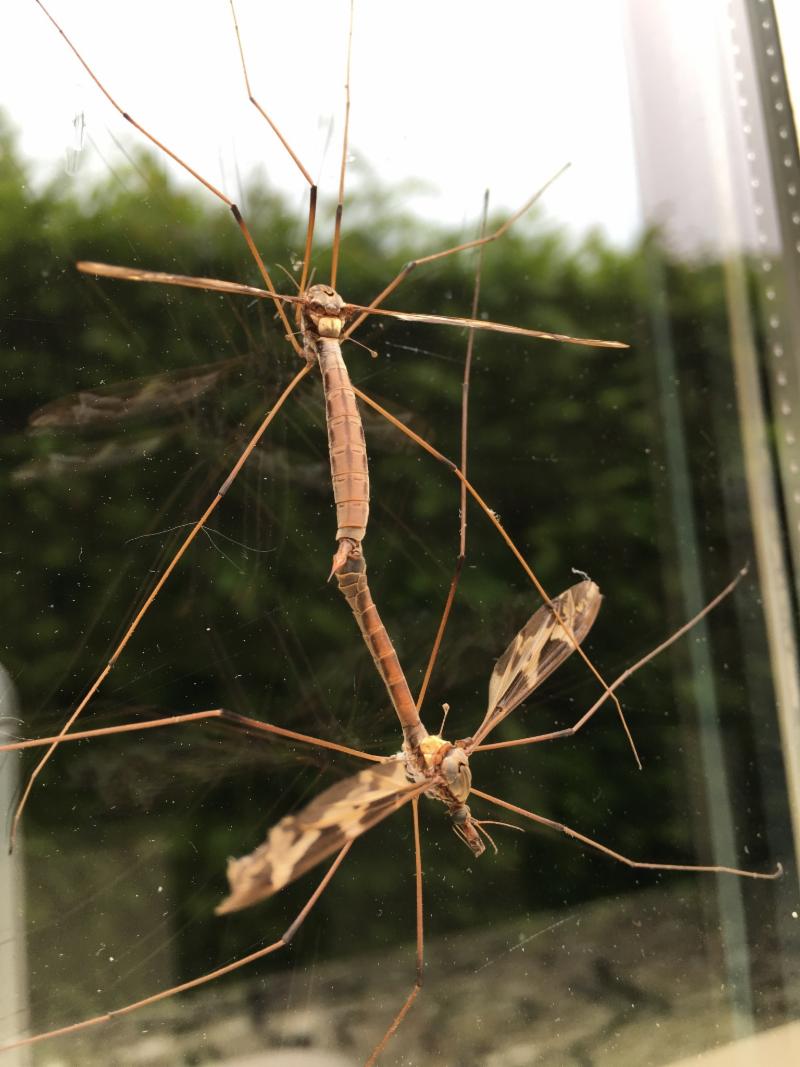It is about
this time of year you will start seeing eels in the chalkstreams as they
relinquish the muddy ditches and ponds they have called home for the past 10-20
years to start the 3,700 mile journey back to the breeding grounds of the
Sargasso Sea via the river they originally arrived up.
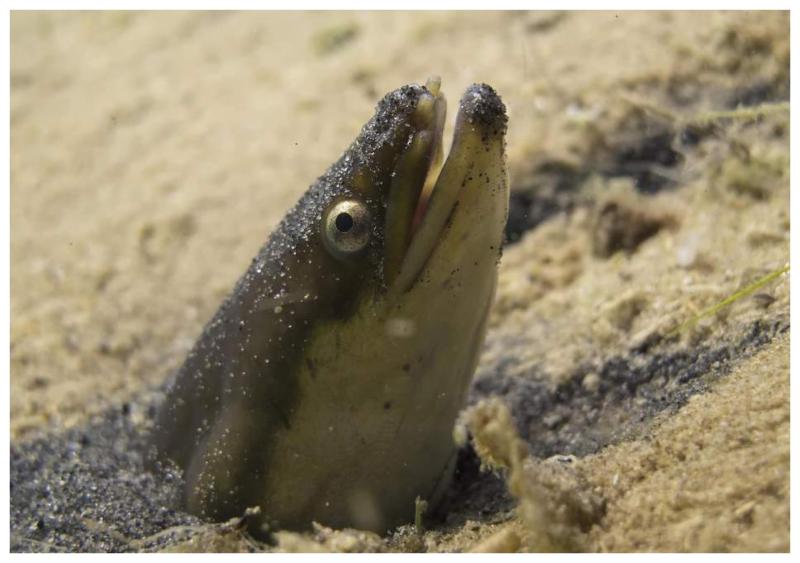 They don't rush. This will be the last time in their lives they
will feed. Once they enter the ocean they will stop eating, consuming
themselves from the inside until they spawn and die. If you want to spot them
before they run to the ocean on the cycle of the moon look as they dig head
first, tail waving in the current, amongst the roots of the river bed weed. Or
listen for a delicate slurping sound in the margins. Cunning eels wait for the
nymphs crawling up the reed stems to emerge to hatch in the fresh air. But that
moment, as they push hard to break the surface tension from water to air, makes
then vulnerable. That noise is eels sucking in the unsuspecting nymphs.
They don't rush. This will be the last time in their lives they
will feed. Once they enter the ocean they will stop eating, consuming
themselves from the inside until they spawn and die. If you want to spot them
before they run to the ocean on the cycle of the moon look as they dig head
first, tail waving in the current, amongst the roots of the river bed weed. Or
listen for a delicate slurping sound in the margins. Cunning eels wait for the
nymphs crawling up the reed stems to emerge to hatch in the fresh air. But that
moment, as they push hard to break the surface tension from water to air, makes
then vulnerable. That noise is eels sucking in the unsuspecting nymphs.
But, sadly, you will not have seen or heard so much of eels in the
past decade as the population has collapsed by some estimations as much as 90%.
There has been a slight uptick recently on the chalkstreams but it is still
pretty dire with eels now on the endangered Red List.
The decline might be a solvable problem if anyone knew for
certainty what is causing the problem. The main theory is that northern
hemisphere eels have contracted a disease from southern hemisphere eels that
affects their swim bladder which effectively means they never complete the
return trip to the Sargasso Sea. They don't actually swim but hitch a ride on
the Atlantic currents 'surfing' the currents which move up and down in the
ocean, from a few hundred to thousands of feet in depth. Without a swim bladder
they get lost mid-Atlantic, dying as they hollow themselves out.
However, there is a new theory that concerns cocaine. A recent
study by the University of Naples shows that this drug accumulates in the
brain, muscles, gills, skin and other tissues of the eel.This causes physical
injury and, not surprisingly, hyperactivity whilst preventing sexual maturity.
I must admit I had vision of drug cartels flushing contraband down
the loo, but apparently it enters the water system via urine to the extent that
Italy's River Po has 8.8lb of cocaine in it at any one time. And we are not
immune: in 2015 the European Monitoring Centre for Drugs and Drug Addiction
revealed London to have Europe's highest concentration of cocaine in sewage.
If the Naples research turns out to be correct it is really hard
to know where we go from here as the Trainspotting generation will do for one
of our most amazing fish before global warming gets a look in.
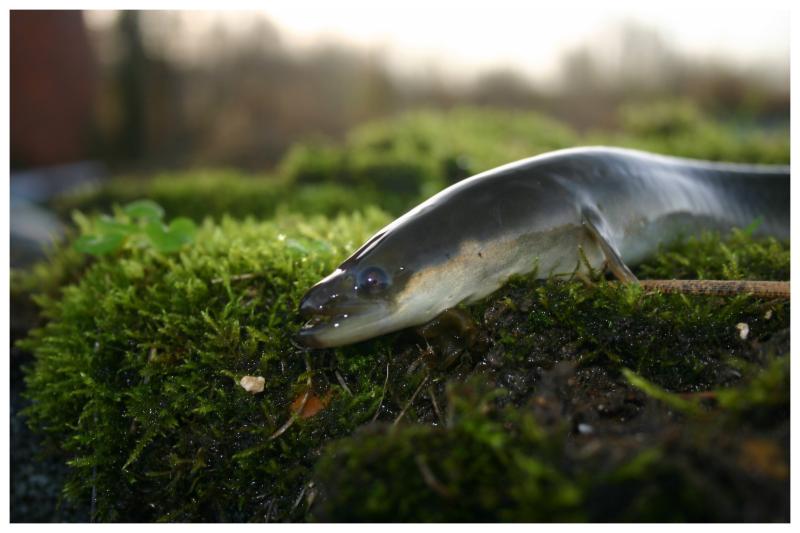
The Rod Box
I have always had a soft spot for The Rod Box. As a tender youth I
dragged my father into the Winchester tackle store to buy my first ever fly
fishing outfit.
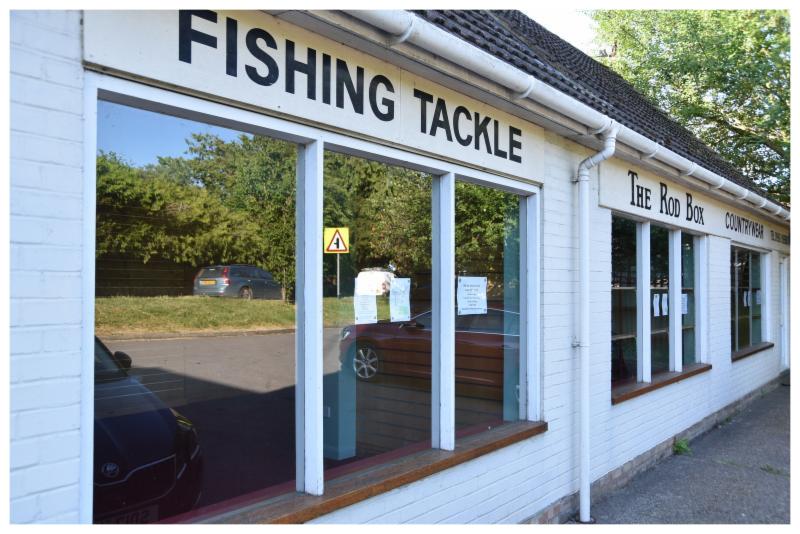 Of course I knew more than
the assembled staff and owners, Ian and Scrappy Hay, despite the fact I had yet
to cast a line or catch a fish. I had, of course, extensively researched
through the pages of Trout
& Salmon and various books the perfect rod for a chalkstream. I
am happy to say Ian put me right and I still, to this day, have the outfit he sold
me.
Of course I knew more than
the assembled staff and owners, Ian and Scrappy Hay, despite the fact I had yet
to cast a line or catch a fish. I had, of course, extensively researched
through the pages of Trout
& Salmon and various books the perfect rod for a chalkstream. I
am happy to say Ian put me right and I still, to this day, have the outfit he sold
me.
The label has
long fallen off so I can't tell you with any certainty what weight or name it
had. I do know for sure it was a Rod Box own brand, 8 foot 6 inches long and
I'd guess a 5 weight. It is fibre glass which was the rod of most choice in those
days - my father wasn't going to run to that latest innovation, carbon fibre.
The Rod Box was
'the' place to shop in those days; Dermot Wilson was just getting going. The
Winchester store, right in the centre of town, was a modern glass box at street
level but those in the know headed downstairs where such extraneous items as
clothing never got a look in.
This was where
you ogled at the rod display before waggling each rod in turn. That didn't tell
you anything but it felt like the right thing to do. Even away at school in the
1970's The Rod Box impinged on my consciousness. Every Saturday they had a full
page mail order advert in The Guardian. Being a bit of a left-wing thinker (aka
stroppy youth) back then I read The Guardian which never struck me as the
natural home for a fly fishing readership but at least it gave me a regular
piscatorial fix.
Later The Rod
Box moved from the city centre to Kings Worthy, a village on the outskirts of
Winchester where it has been for 30 years or more until this week. Being a
fishing tackle retailer is increasingly hard. If you read the trade publication
Guns & Tackle they chart the precipitous decline in the number of
stores to two things: the internet and brand management. On-line is pretty
obvious: who of us haven't browsed in a shop to then find the same item cheaper
on-line? Brand management is more complicated but in essence no longer do the
brand names restrict supply to selected stores. They sell direct and sell at
discounted rates into a 'grey' market. Stores find themselves marooned as the
shop window for products that end up being bought elsewhere.
I tell you all
this as earlier in the week I had a call to tell me The Rod Box had closed. I
found it hard to believe so I went along to see for myself. Indeed it has shut
up shop in Kings Worthy but it is not all bad news as The Rod Box has downsized
to share space with the equestrian shop in none other than Sutton Scotney,
which is a hop, skip and a jump from Bullington Manor, less than a mile from
the Stockbridge exit of the A303.
So it is good to
know it hasn't gone entirely; do check The Rod Box out next time you are
passing.

Quiz
More
chances to prove, or improve, your intellect. Answers, as ever, at the
bottom of the page.
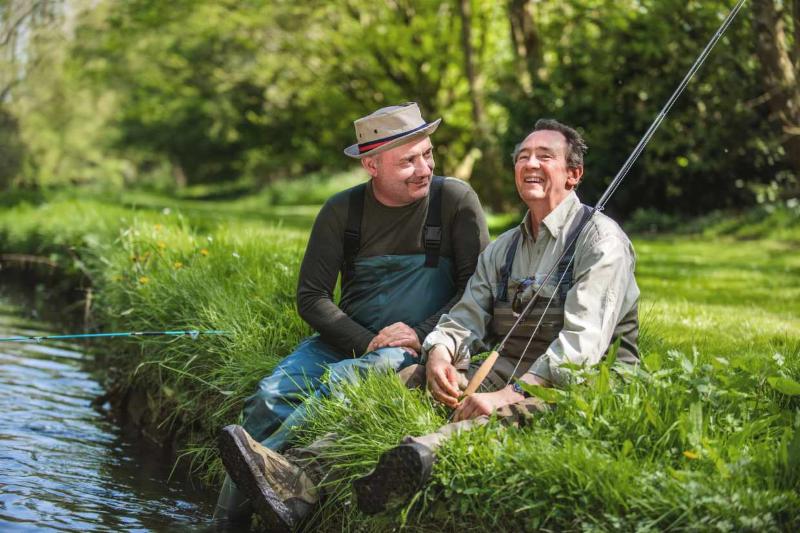
About two years ago Paul
Whitehouse called me up. 'Simon' he says, 'I have this idea for a TV show. Two
sick old b******s going fishing. What do you think?' As he sketched the idea -
fly, sea and coarse fishing - I said I know just the man. One call later and
John Bailey was the Fishing Consultant on the new series Mortimer & Whitehouse: Gone Fishing.
Nice work John, though I'm sorry after 25+ days on 'set' we never got to see
you in front of the camera. The show airs on BBC
Two on Thursday nights at 10pm.
1) Which
university did Paul Whitehouse attend?
2) Who has been
Bob Mortimer's long-time TV comedic partner?
3) Who co-wrote
and appeared in The Fast Show with Paul Whitehouse?
Enjoy the weekend.
Best wishes,
Simon Cooper simon@fishingbreaks.co.uk
Founder & Managing Director
Quiz answers:
1) University of East Anglia
along with contemporaries Charlie Higson and me. Where did it all go wrong?
2) Vic Reeves
3) Charlie Higson

 These outdoor events typically held on the village green did, as far as I know, originate in rural England. An afternoon when the villagers come together to raise funds for some worthy cause (usually the church that none of us attend) by way of Thwack the Rat, Apple Bobbing, Produce Stalls, Crazy Golf, Coconut Shy and any other activity you care to think of that could only ever take place at an annual fete.
These outdoor events typically held on the village green did, as far as I know, originate in rural England. An afternoon when the villagers come together to raise funds for some worthy cause (usually the church that none of us attend) by way of Thwack the Rat, Apple Bobbing, Produce Stalls, Crazy Golf, Coconut Shy and any other activity you care to think of that could only ever take place at an annual fete.




